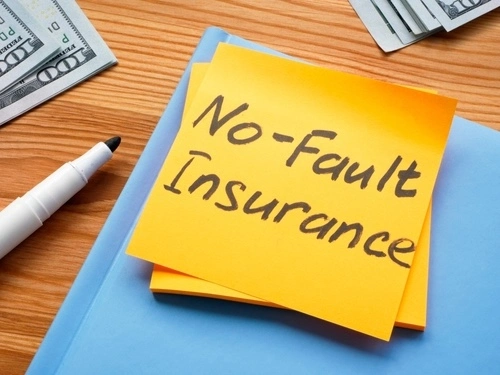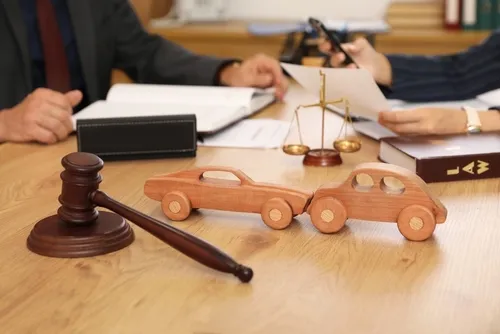Is Georgia a No-Fault Accident State? No, Georgia is an At-Fault State.
If you’ve been in a car crash, you may be wondering, “Is Georgia a no-fault accident state?” Understanding Georgia’s car accident laws is crucial, especially if you’re dealing with medical bills and property damage.
Unlike some states that follow a no-fault system, Georgia is an at-fault state. This means that the driver responsible for causing an accident is also financially liable for the damages. You must prove the other driver was at fault to recover compensation.
An experienced Atlanta car accident lawyer at GMV Law Group can help you navigate the legal process.
At-Fault vs. No-Fault States
When it comes to car accident claims, states generally follow either a no-fault or an at-fault system. Each system dictates how drivers seek compensation after a crash and who ultimately pays for damages.
How Do No-Fault States Handle Car Accident Claims?
In no-fault states, each driver’s insurance policy covers their medical expenses and certain other losses, regardless of who caused the accident. This means that even if another driver was responsible for the crash, your insurance would pay for your medical treatment.
No-fault laws aim to reduce the number of lawsuits by limiting the ability to sue the at-fault driver. However, in most no-fault states, victims can still file a lawsuit if their injuries meet a certain severity threshold.
Personal Injury Protection (PIP) is a key component of insurance in no-fault states. This coverage helps pay for medical bills, lost wages, and other expenses. While no-fault laws can speed up the claims process, they also restrict an accident victim’s ability to recover full compensation for pain and suffering unless the injuries are severe.
Georgia Is an At-Fault State for Accidents
Georgia follows an at-fault system, meaning that the driver who caused the accident is responsible for covering the damages. If you’re injured in a car accident in Georgia, you generally have three options for seeking compensation:
- File a claim with your own insurance company, which may then seek reimbursement from the at-fault driver’s insurance company.
- File a third-party claim directly with the at-fault driver’s insurance provider to cover medical bills, vehicle repairs, and other damages.
- File a lawsuit against the at-fault driver if their insurance company refuses to offer a fair settlement or if damages exceed policy limits.
Because Georgia follows a modified comparative negligence rule, your ability to recover compensation depends on your level of fault. If you are less than 50% responsible for the crash, your compensation will be reduced by your percentage of fault. However, if you are 50% or more at fault, you cannot recover any compensation.
Proving Fault After a Car Accident in Atlanta, GA
Determining fault after a car accident in Georgia involves gathering evidence and analyzing the circumstances surrounding the crash. Insurance companies conduct investigations to determine who is responsible for the collision.
A skilled Atlanta car accident lawyer will work to prove the other driver was negligent and that their careless or reckless actions caused the crash.
The police report is a key piece of evidence in insurance claims and lawsuits. When an accident occurs, law enforcement officers document the details, interview witnesses, and sometimes issue citations if a traffic law was violated.
Witness testimony is also important in proving fault. If bystanders, passengers, or other drivers saw what happened, their statements can help establish a clear picture of the events leading up to the crash.
Physical evidence like skid marks, vehicle damage, traffic camera footage, and debris on the roadway can all help reconstruct how the crash occurred. Accident reconstruction experts may be called in for complex cases to analyze this evidence and determine the sequence of events.
Comparative Negligence: What If You Are Partially at Fault?
Georgia has a comparative negligence law. If both drivers are found to have contributed to the crash, their percentage of fault will be determined, and any compensation awarded will be adjusted accordingly.
For example, if a driver is 20% responsible for an accident, their total compensation will be reduced by 20%. You cannot recover compensation if you are 50% or more at fault.
Car Insurance Requirements in Georgia
Since Georgia is an at-fault state, drivers are required to carry liability insurance to cover potential damages in an accident. The minimum car insurance requirements in Georgia are:
- $25,000 per person for bodily injury liability
- $50,000 per accident for bodily injury liability (if multiple people are injured)
- $25,000 per accident for property damage liability
These minimums ensure that drivers have financial protection if they cause an accident. However, medical expenses and vehicle repairs can quickly exceed these limits, so many drivers choose to purchase higher coverage amounts.
Georgia drivers can purchase uninsured/underinsured motorist (UM/UIM) coverage, which helps protect them if they’re involved in an accident with a driver who has little or no insurance.
Unlike in no-fault states, Georgia drivers are not required to carry Personal Injury Protection (PIP). Instead, medical expenses are typically paid through health insurance, MedPay (if purchased), or a claim against the at-fault driver’s insurance.
Contact GMV Law Group for a Free Consultation
If you were in a car accident in Georgia, it’s important to understand that the state follows an at-fault system, not a no-fault system. The driver responsible for the crash is liable for damages. Victims can seek compensation from the other driver’s insurance company.
However, navigating insurance claims after a car crash can be challenging. Insurance adjusters strive to minimize payouts. An experienced Atlanta car accident lawyer can help you recover the compensation you deserve.
GMV Law Group has won millions for clients. Our law firm only gets paid if we secure compensation for you. Contact our skilled Atlanta injury attorneys today for a free consultation.



